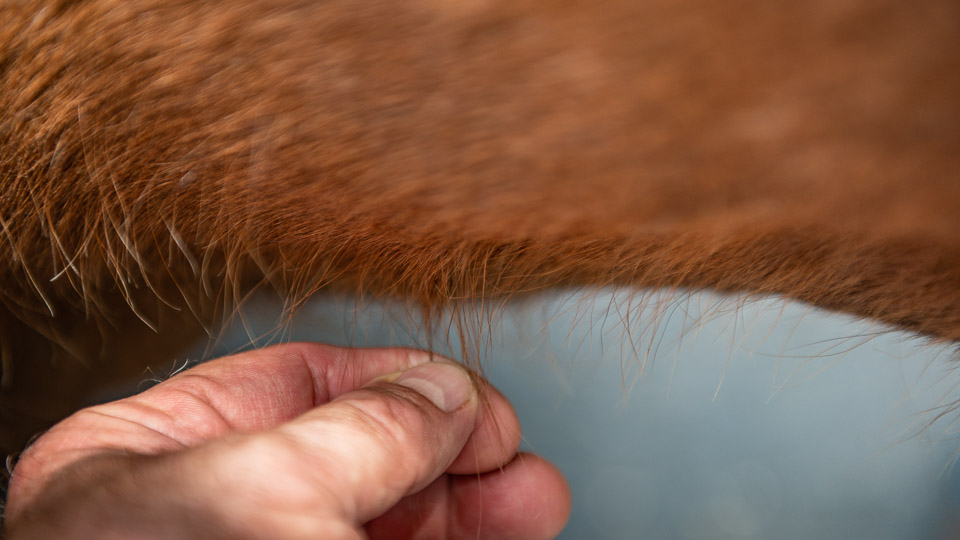
Horse Parasitic Diseases – An Introduction
A parasite is another organism living in or on a host using the host to survive. Some parasites are host specific (lice) while others can cross between species (lung worms). The most important aspect of a “good” parasite is that the host is not adversely affected and remains healthy. However as the number of parasites in or on the host increase a toll is taken. Conversely, if the host is not healthy the parasites are not kept in check by the host’s immune system and soon take over. I have seen both cases.
The parasite requires a host in its life cycle and without it the parasite will die. Therefore it is in the interest of the parasite not to harm the host. With increased density and confinement of horses and the addition of stress such as shipping, over work, poor nutrition and crowding the host is often unable to balance their life with a normal population of parasites. The result is an infection of parasites above what the horse can live with resulting in weight loss and degradation of health.
Internal parasites are those that live within the body. They enter through the mouth and move through their growth cycles finally shedding their eggs in the feces where they start a new life cycle. Often their migrations through the body cause local inflammation that can lead to discomfort, disease or even death. Some only affect weak horses such the young and geriatric horses while the immune system of the healthy host kills the majority of the parasite.
External parasites are those that live on the body. Some of these such as lice require the host for their survival while other external parasites do not. These only feed on blood (ticks, biting flies) or the dirt and sweat of skin (flies). Some flies are opportunist and lay their eggs in skin wounds (habronema, summer sores). These might not be technically parasites but from my view, anything that lands on an animal and bites or breeds there is a parasite.
Viruses are technically parasites as they require a host to reproduce and exchange their DNA or RNA with the host. Most viruses and parasites come and go as part of living on Earth and their survival requires the host to remain healthy. It is only when the virus takes advantage of a weakened host that it causes more damage than the host can tolerate. This sounds like a parasite to me. Examples are Equine Infectious Anemia (the Coggin’s test) and West Nile virus.
Horse Parasitic Diseases – EPM In Horses (Equine Protozoal Myelitis)
EPM In Horses (Equine Protozoal Myelitis)
Horse Parasitic Diseases – External Parasites
External Parasites In Horses
Horse Parasitic Diseases – Habronemiasis (Summer Sores)
Inflammation caused by the biting stable fly that deposits the larvae of the habronema nematode producing moist sores on the eyes, mouth, nostrils, foreskin, and wounds.
Horse Parasitic Diseases – Internal Parasites
Parasite control has evolved since the first packets of deworming medication showed up in the barn in the mid 1970’s. New chemicals, different strategies, and now the fear of resistance cloud up the issue.
Worms!
How did your parents deworms you? Fecal egg counts, dewormers and natural control are discussed here. The cause of infection and controlling worms is really easy and free.
Horse Skin And Hair – Ringworm
Fungal infections can affect the skin of the horse and is contagious between horses and humans. There is usually an immunosuppression factor involved.
A Better Approach To Parasite Control
Parasite control is being debated within the profession. The worry of resistance is real. But the truth of controlling parasites lies in how your mother prevented them in you. This is a tough-love advice blog on true parasite control in horses.
Horse Disease Prevention – Parasite Control
Pastures are shrinking and the number of horses per pasture are increasing. This leads to a sanitation problem where horses are eating where they defecate. Rather than resolve the sanitation, medicines were created that killed a lot of parasites but allowed for the development of strains that were resistant to the medications.
Podcast #022 – Parasites Revisited and Liver Disease
Meetings – Parasites Revisited and Liver Disease – The Horse’s Advocate Podcast #022


Responses